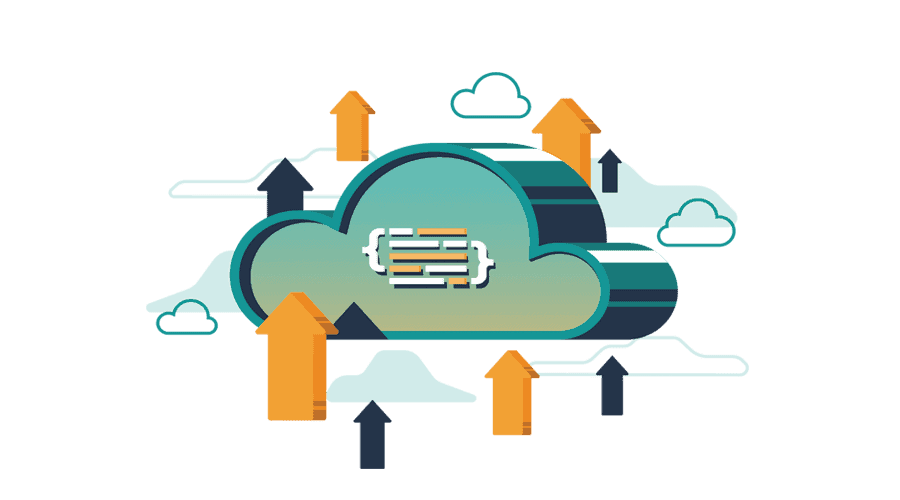In the ever-evolving landscape of cloud computing, managing costs efficiently while optimizing performance has become paramount for organizations. But as said rightly, “need is the mother of invention” and hence, FinOps, a fusion of “Finance” and “DevOps,” emerges as a pivotal discipline in cloud financial management.
This blog delves into the key reasons your organization can’t afford to overlook FinOps.
First thing first,
Here’s why your organization can’t afford to ignore FinOps:
Choosing to sideline FinOps introduces an element of risk. Without proper collaboration, cost understanding, and governance, cloud strategies become vulnerable to overspending and missed optimization opportunities. It transforms the cloud environment into a high-stakes gamble with uncertain outcomes. Before delving into the risks, it’s important to understand what FinOps actually mean.
What Does FinOps Mean, Anyway?
At its core, FinOps is not just a methodology but a cultural practice. It facilitates collaboration among cross-functional teams, including engineering, finance, and business, fostering a dynamic environment for managing cloud costs effectively. This amalgamation of financial accountability and operational efficiency is the linchpin to unlocking maximum business value in the cloud.
More of what Does FinOps mean:
- FinOps is not merely a framework but a cultural shift, aligning diverse elements to promote financial accountability and extract optimal business value.
- Acting as a navigator, FinOps helps unravel the intricacies and challenges inherent in traditional IT financial management.
- Functioning as an architect, FinOps meticulously outlines the fundamental components and key success metrics, paving the way for the tangible realization of business value.
FinOps isn’t merely a buzzword; it’s a transformative force that can redefine how organizations navigate the complexities of cloud financial management.
With an
- Enhanced cost visibility,
- Improved financial bottom line,
- Increased agility and responsiveness,
- Stronger collaboration, and
- The empowerment of a unified ecosystem position
FinOps proves to be worth the buzz as an indispensable ally in the pursuit of maximizing business value through the cloud.
#1 Navigates Cloud Cost:
- FinOps acts as a precise navigational tool, illuminating the obscured facets of cloud expenditure and ensuring a comprehensive grasp of financial intricacies.
- Organizations embracing FinOps gain unparalleled insights into their cloud costs. This enhanced cost visibility goes beyond superficial expenditure, providing a granular understanding of resource consumption and service utilization.
- Armed with this knowledge, informed decisions can be made to shape the future trajectory of the organization’s cloud strategy
- Through practices like resource rightsizing, demand management, and adept pricing model selection, organizations witness substantial cost savings.
#2 FinOps as a Holistic Framework:
Beyond a mere industry buzzword, FinOps stands as a robust framework.
- It operates as a central hub, seamlessly integrating finance, engineering, and business functionalities.
- This integration transforms cloud cost management into a systematic process, emphasizing efficiency and precision.
- FinOps acts as a vigilant guardian against waste, actively identifying and eliminating idle or underutilized resources, contributing significantly to overall cost efficiency
- FinOps plays a pivotal role in increasing an organization’s agility and responsiveness.
#3 Strategic Integration:
FinOps transcends being a supplementary tool; it evolves into an essential component of strategic vision.
- By aligning with organizational objectives, FinOps ensures that each financial decision resonates with broader business goals, emphasizing a meticulous and goal-oriented approach.
- By automating tasks and processes, the time taken to provision and de-provision resources is significantly reduced. This rapid scalability proves invaluable in scenarios where swift adjustments to infrastructure are imperative due to changing demands
#4 Works as a Guiding System for Cloud Financial Management:
Unveiling the layers of cloud costs without FinOps is akin to traversing unknown terrain without a GPS. FinOps serves as the navigational beacon, providing strategic insights for informed decision-making. It ensures a systematic approach to cloud cost navigation, mitigating the risk of overspending and optimizing resource allocation.
Immediate Implementation by Mitigating Risks and Maximizing Benefits:
Postponing FinOps implementation is synonymous with forfeiting potential cost optimizations. The early adoption of FinOps proves instrumental in identifying and capitalizing on opportunities for efficiency and cost reduction in the initial stages of the cloud journey.
#5 Interdepartmental Synergy:
- FinOps thrives on collaboration among IT, finance, and business units.
- It eradicates communication silos, fostering an environment where each department is synchronized in understanding and achieving overarching financial objectives.
- Different teams can access relevant cost data and reports tailored to their roles, fostering a cohesive and efficient working environment
#6 FinOps Beyond Cost Savings: A Comprehensive Approach
FinOps is not just about numbers; it’s about people and collaboration. By bringing finance, operations, and technology teams together, FinOps fosters a collaborative environment. This cross-functional collaboration transcends traditional silos, leading to improved understanding, alignment, and decision-making across the organization
FinOps isn’t confined to a cost-cutting agenda; it functions as the cornerstone for realizing business value and accelerating innovation. It systematically establishes financial accountability, enhances cost visibility, and drives efficiency, transcending the narrow scope of conventional cost management practices.
Conclusion:
“FinOps Is The Technical Backbone of Cloud Financial Management. “
Embracing FinOps not only safeguards against the pitfalls of financial ambiguity but also establishes a structured, strategic, and technically sound approach to expertly navigate the complexities inherent in cloud financial management. It is the compass guiding organizations towards optimized operations, financial prudence, and ultimately, unparalleled success in the cloud.
Ignoring FinOps is not just a missed opportunity; it’s a risk organizations can ill-afford to take.
